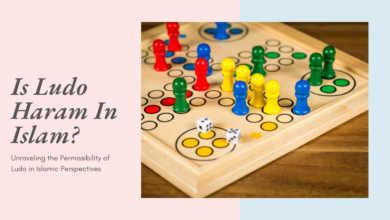The Impact of Reciting Surah Fajr on Mental Well-Being

Introduction
In today’s fast-paced world, stress, anxiety, and mental health issues have become pervasive problems. People are continuously seeking ways to find solace and peace in their lives. For many Muslims, reciting the Quran, the holy book of Islam, holds immense spiritual significance. One chapter, Surah Fajr, has garnered attention for its potential impact on mental well-being. This article explores the profound influence of reciting Surah Fajr on mental health and overall emotional balance.
Surah Fajr: An Overview
Surah Fajr is the 89th chapter of the Quran, consisting of 30 verses. It was revealed in Makkah and is categorized as a Meccan Surah. This chapter holds immense significance, not only for its spiritual essence but also for the various lessons it imparts to believers. It addresses themes of gratitude, the consequence of wrongdoings, and the importance of reflecting on history and nature. Reciting Surah Fajr is believed to have several profound effects on a person’s mental well-being.
Inner Peace and Tranquility
Reciting Surah Fajr in the early hours of the morning, before dawn, can bring about a sense of inner peace and tranquility. The quietness of the pre-dawn hours allows for uninterrupted reflection, leading to a sense of calmness within oneself. Moreover, the act of connecting with the divine through the recitation of Surah Fajr is believed to strengthen the bond between the individual and their faith, fostering emotional balance and contentment.
Stress Reduction
The rhythm and melody of Quranic verses, including Surah Fajr, have a soothing effect on the mind. When recited with devotion and sincerity, it helps individuals disconnect from their worldly worries and focus on a higher purpose. The repetitive nature of recitation can induce a meditative state, lowering stress levels and promoting relaxation.
Increased Gratitude
Surah Fajr emphasizes the importance of acknowledging and being grateful for the blessings in one’s life. Gratitude has been scientifically proven to have a positive impact on mental health. When individuals recite Surah Fajr and contemplate its message, they are reminded of the countless blessings they often take for granted. This fosters an attitude of gratitude, which can lead to improved mental well-being and a more positive outlook on life.
Source of Hope and Encouragement
Surah Fajr recounts the stories of past civilizations and their ultimate downfall due to their wrongdoing. However, it also highlights the importance of hope and resilience. For individuals facing hardships and challenges, reciting this Surah can serve as a source of hope, reminding them that after every difficulty comes ease (Quran, 94:6). Such encouragement can help individuals cope with their struggles and strengthen their resolve to overcome adversities.
Strengthening Faith and Belief
The act of reciting Surah Fajr regularly can reinforce one’s faith and belief in the divine. Faith provides a sense of purpose and direction in life, reducing feelings of hopelessness and despair. As individuals deepen their connection with the Quran and its teachings, they may experience an increased sense of self-awareness and spiritual growth, leading to improved mental well-being.
Conclusion
Reciting Surah Fajr is a spiritual practice that holds immense significance for Muslims. Beyond its religious importance, the recitation of Surah Fajr has the potential to positively impact mental well-being. Through fostering inner peace, reducing stress, promoting gratitude, providing hope, and strengthening faith, Surah Fajr serves as a powerful tool for emotional healing and balance. However, it is essential to remember that while spiritual practices can be beneficial, they are not a substitute for professional mental health care. Seeking guidance from mental health professionals is crucial for individuals facing severe mental health challenges. By combining faith with appropriate support, individuals can strive towards a more harmonious and healthy life.





